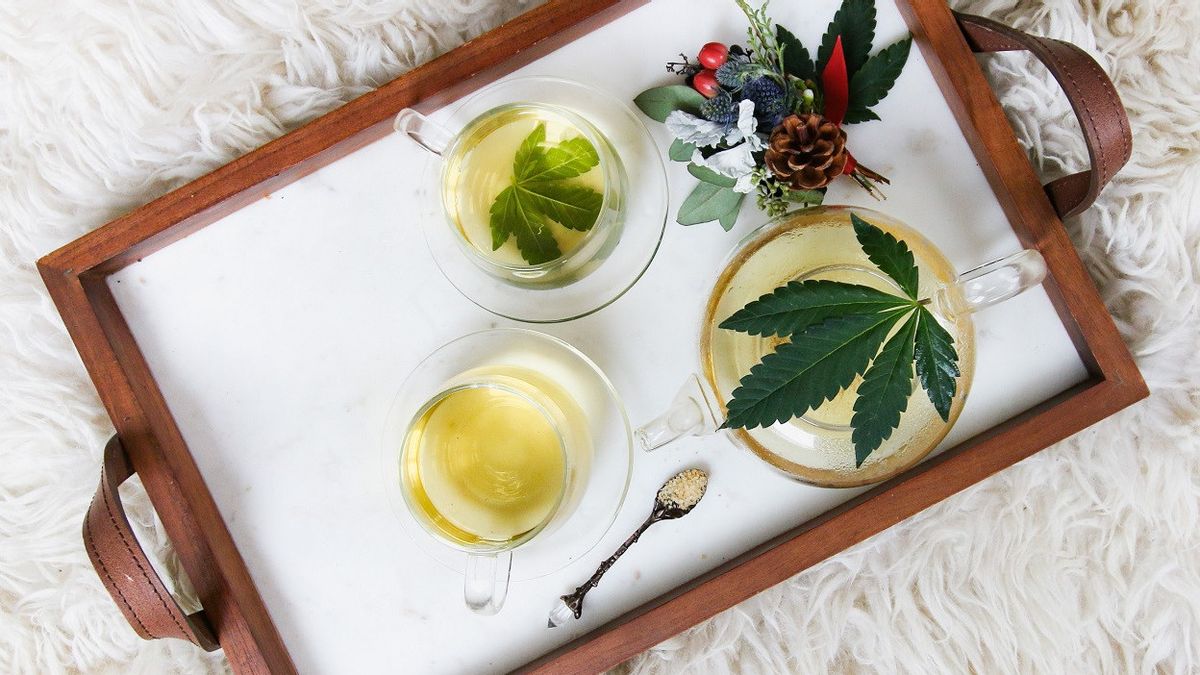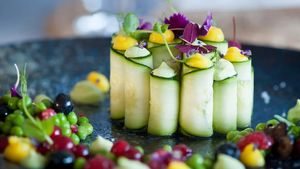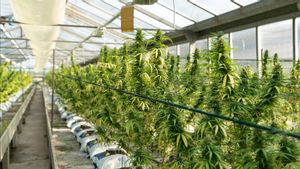JAKARTA - The legalization of marijuana earlier this year by the Bangkok authorities has made this 'plant-based' business squirm with great potential.
Not only one sector, but marijuana is also able to drive cross-sectoral businesses in Thailand, from food, beverages, cosmetics, to shampoo, shower gel, and toothpaste.
Thai companies are scrambling to invest in cannabis, seeking to become the first movers in Asia's burgeoning multi-billion dollar industry after Bangkok legalized the use of hemp and cannabidiol (CBD).
Cosmetics makers, beverage companies, and rubber product businesses are now investing in developing domestic cannabis farms and products that use the plant's leaves.

Importing hemp and its derivatives is permitted for research purposes only. Only companies that are majority-owned by Thais can receive a license to use hemp, under government regulations.
According to Prohibition Partners' calculations, this business has a potential of US $ 660 million in Thailand and US $ 8.5 billion across Asia by 2024. Opportunities created from the legal marijuana market.
With Thailand moving faster than other countries in the region such as Malaysia and Singapore, still debating legalization, enthusiastic executives are embracing the opportunity to build a strong position.
"This is a golden opportunity," said Tan Passakornnatee, chairman of beverage company Ichitan Group Pcl, as reported by Reuters.
"Taking the top market position will be important for the company, because it is rare for a product, not only national but also global," he continued.

To be sure, the companies involved and analysts alike agree that the path to profitability can be difficult to navigate. Raw materials will be in short supply as only a small number of licensed growers are present, while the science of extracting compounds can prove another costly hurdle.
"There will be disruptions along the way. It will not be smooth and (some) will anticipate revenue that is not coming," said Maria Lapiz, head of institutional research at Maybank Kim Eng.
Even so, said Lapiz, if there were export opportunities, growth in agricultural income would boost Thailand's economy.
Thailand has a history of using marijuana in traditional medicine for pain relief, as well as in seasonings. In 2018 they legalized the plant for medical and research use.
Hemp is in demand among consumer goods makers, as it is widely considered a superfood with health benefits, and has a higher concentration of CBD of the non-psychoactive compound.

Drink maker Ichitan has already launched a drink made with terpenes, a government-approved compound also found in marijuana, in what it says is a move to gain public recognition for this kind of product before regulatory approval for its CBD drink, hopefully, this year.
In the cosmetics field, the Smooth E brand hopes to be the first to have a CBD product and is expecting approval in August.
“We can call it Smooth CBD. There is potential for CBD shower gel, shampoo, and toothpaste under its oral care brand, Dentiste,” said chief executive Sangsuk Pithayanukul.
"Every country has a unique product. Thailand should choose marijuana as its signature product," he said.
Meanwhile, the former investment banker who now runs the Golden Triangle Group Kris Thirakaosal said: The tropical climate, water, and traditions make Thailand suitable for growing cannabis.
"The company has so far invested 120 million baht (3.92 million US dollars) to build a genetics laboratory covering an area of 500 square meters. We have developed our own hemp variety called Raksa, which means a cure," he explained.
The chairman of the Golden Triangle, Chatchaval Jiaravanon, is a member of the billionaire family that controls one of the country's largest agro-industrial conglomerates, the Charoen Pokphand Group, which also advises the Golden Triangle on models for co-farming.
Elsewhere, rubber maker Sri Trang-Agro Pcl said it hoped to plant its first cannabis crop after receiving approval this year, with a potential of more than 790 hectares, said Tipwadee Sudwayha, head of investor relations. With an investment of around 100 million baht, he said, the costs were not high because the company already owned the land.
SEE ALSO:
Some, such as plant-based food company NR Instant Produce Pcl, are choosing to purchase existing cannabis operations, rather than starting from scratch, relying on the use of hemp in the diet to generate demand.
"It changes consumer perceptions when I tell them, this is a hempburger," said Chief Executive Dan Pathomvanich.
The English, Chinese, Japanese, Arabic, and French versions are automatically generated by the AI. So there may still be inaccuracies in translating, please always see Indonesian as our main language. (system supported by DigitalSiber.id)


















